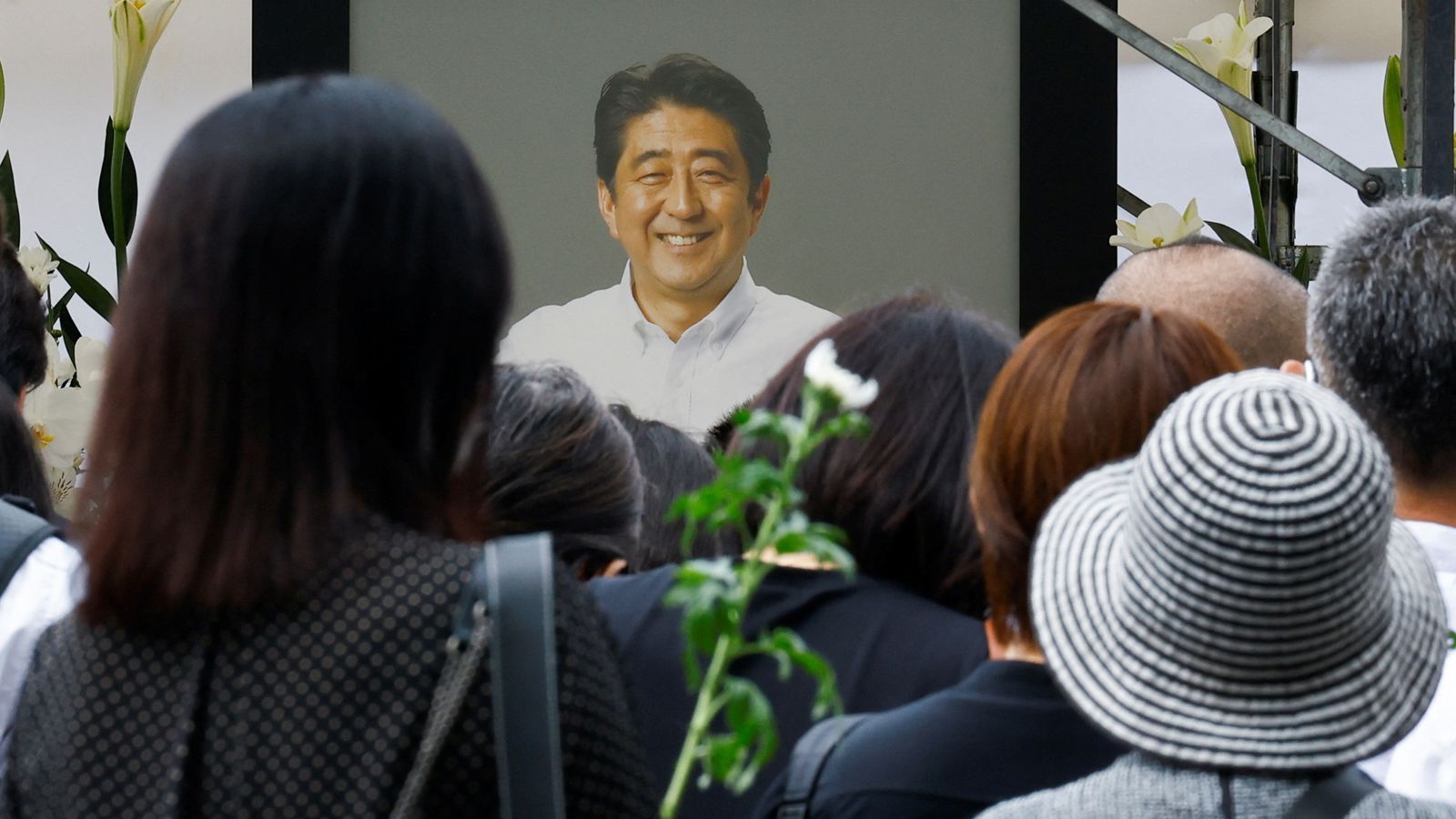The Japanese prime minister has blamed inadequate police security for the assassination of former leader Shinzo Abe, who was shot while giving a speech.
Fumio Kishida said that officials at the National Public Safety Commission and National Police Agency were investigating what went wrong and will come up with measures to improve.
He said: “I urge them to fix what needs to be fixed, while also studying examples in other countries.”
Mr Abe, the country’s longest-serving prime minister, was assassinated last week in the western city of Nara.
Mr Kishida also announced plans to hold a state funeral for Mr Abe later this year, noting his contributions at home and in boosting Japan’s security alliance with the United States.
Mr Abe was shot with what appeared to be a homemade gun as he made a campaign speech outside at a political rally on Friday.
He sustained two neck wounds and died a few hours after the attack.
Japanese researchers unveil artificial-gravity facilities proposed for Moon and Mars
Shinzo Abe’s party on course to increase upper house majority after former PM’s assassination
Shinzo Abe: Police admit security flaws as body of assassinated former Japanese PM is taken home
Photos and videos of the shooting show the alleged gunman was able to come close to Mr Abe.
A suspect, named by police as 41-year-old Yamagami Tetsuya, was arrested at the scene and is being detained for questioning.
The police said he told investigators that he shot Mr Abe because of a rumoured link between the former leader and a religious group he hated.
A government spokesman said it will review possible regulations on handmade guns.
Tomoaki Onizuka, the Nara prefectorial police chief, said: “We can’t deny that there were problems with the security plan given how things ended.
“I feel a grave sense of responsibility.”
Itaru Nakamura, commissioner general of the National Police Agency, has expressed regret for the killing.
He said at a news conference: “We failed to fulfil our responsibility to protect dignitaries.
Please use Chrome browser for a more accessible video player
“We take this extremely seriously.
“My responsibility at this stage is to devote all of my efforts to reviewing (the incident) so that police departments across the country will learn from the review to prevent similar incidents from ever happening again.”
The assassination, the first of a sitting or former Japanese prime minister since the 1930s, shocked the nation.
Political violence is rare in Japan, which has strict gun regulations.











